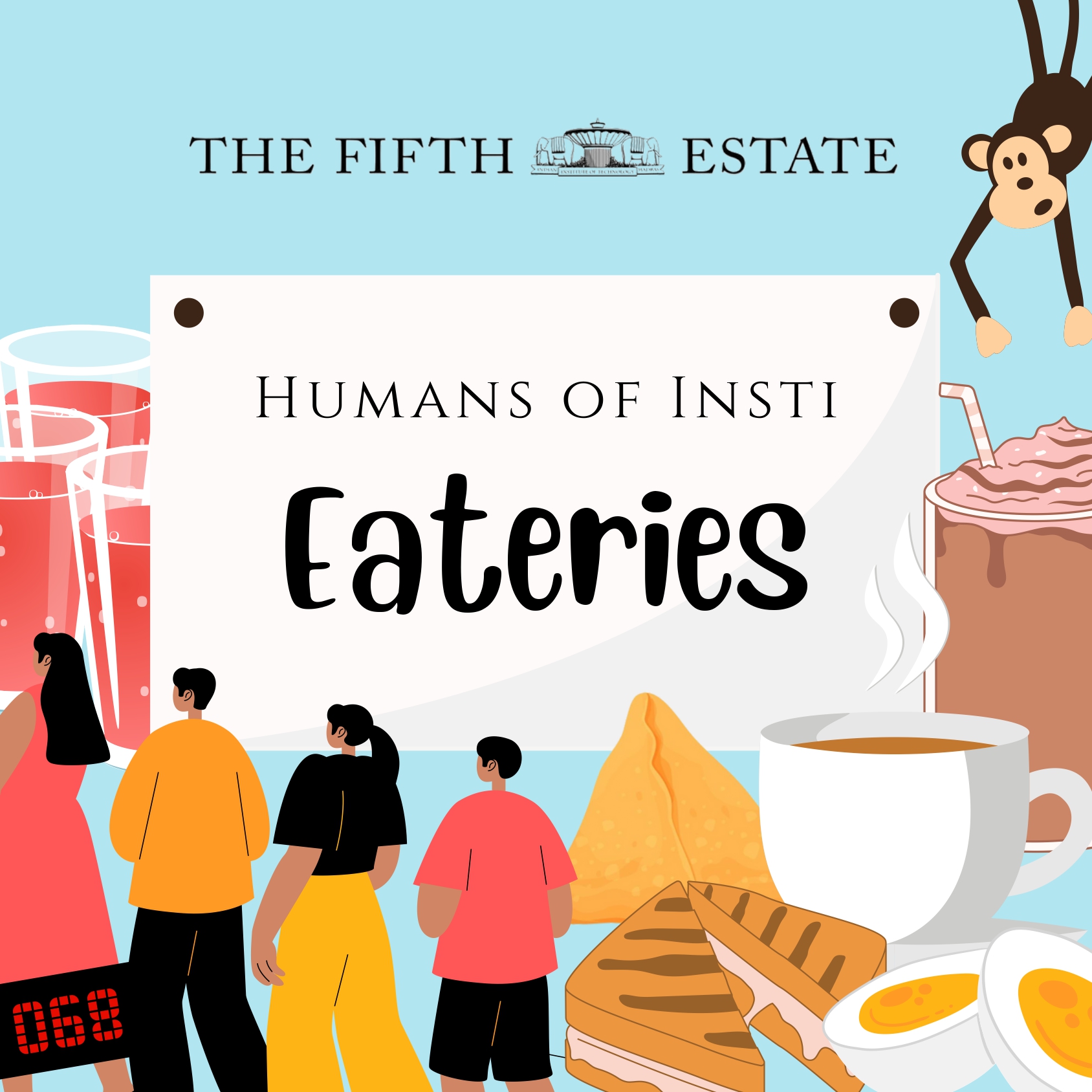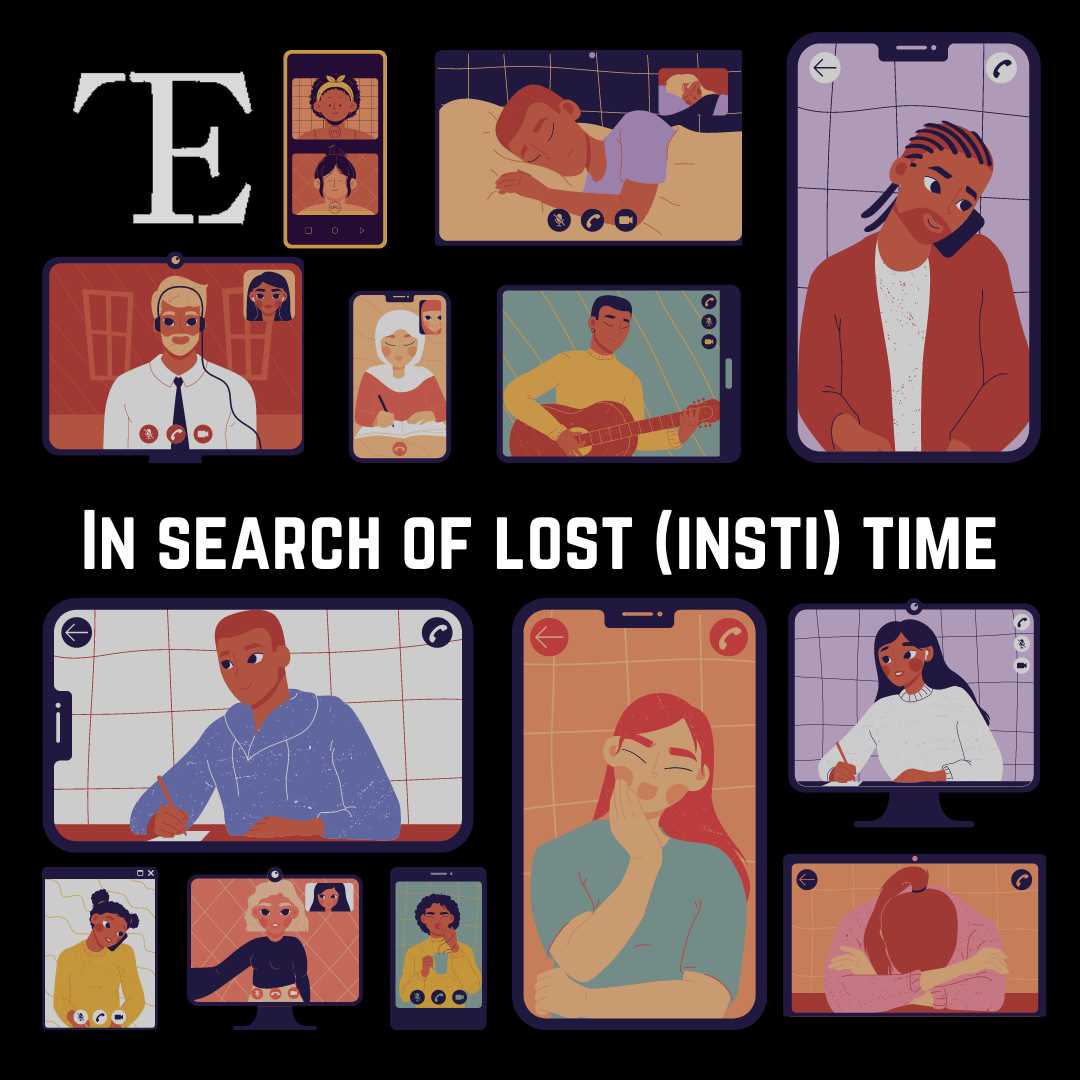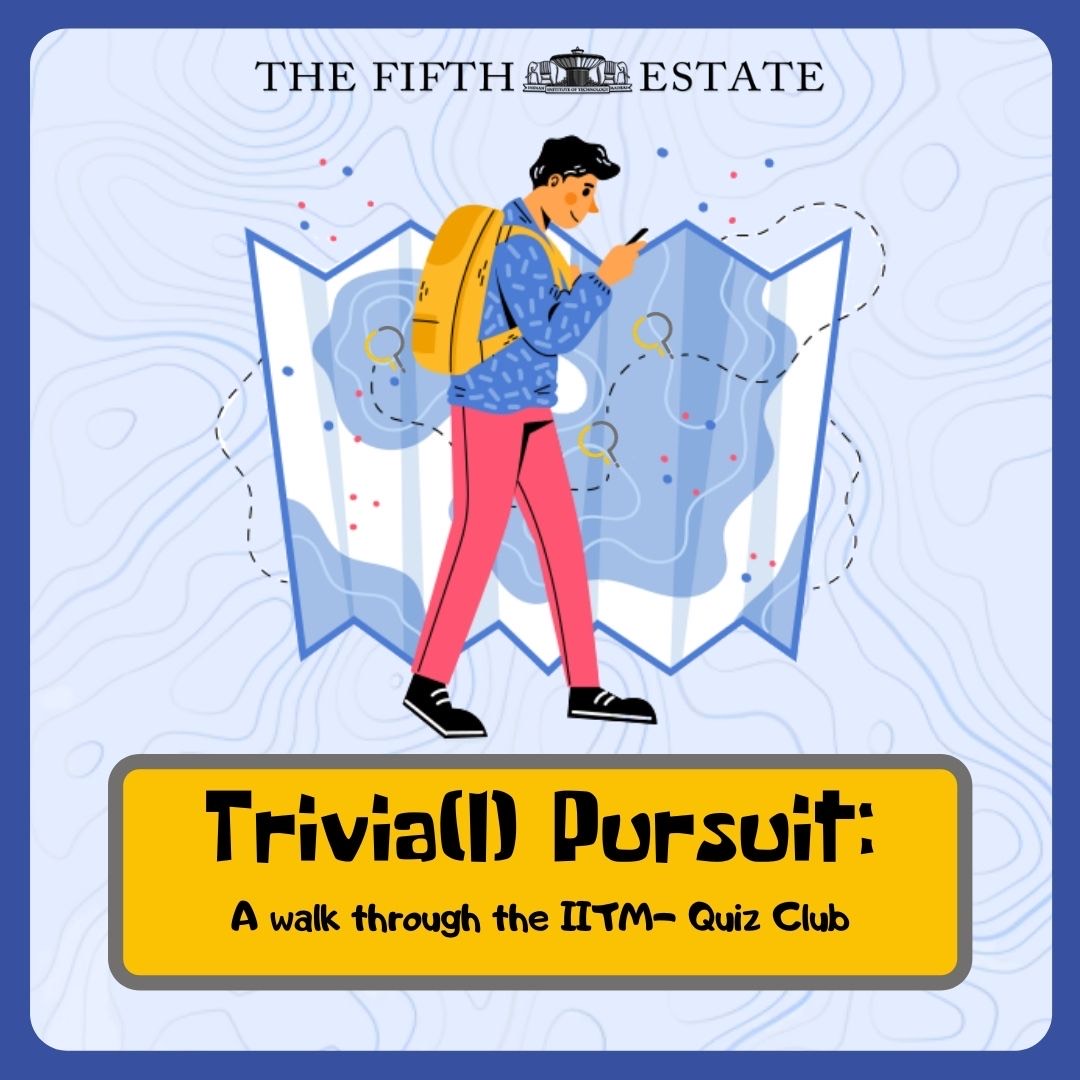Design by: G Rohit Reddy
Now that you have successfully attended at least ten fundae sessions from home, it is time for the mother of all fundaes: the Fundae Fundae.
Fundaes are useful pieces of information extracted from seniors for PoRs, courses, placements, higher studies or even just life. Fundae sessions, which are arranged with a set objective, are useful for targeted advice about PORs and academic processes.
But fundaes in themselves are, at their simplest, a function of interacting with seniors. An immensely useful source, it brings us in context with our aims and provides us with reality checks that we cannot imagine getting from the internet – be it apping, RGing or surviving. Being a third-person in the narration of a first-person experience by a second-person could go a long way in keeping us informed about the behind-the-scenes that no one tells us about.
As much as it is useful, it is also easy to idolise these seniors and look beyond all the red flags in awe of the things they have done and the things they will do by virtue of being that awesome. It is easy because they have succeeded, and insti’s reputation shows that we can too. However, the entirety of the blame does not rest on us. After years of having drilled our way into this institution, we rarely know what we want to do with our lives. And then we see someone who has skills, background or an academic profile similar to us, successful.
What we don’t, but need to ask ourselves is why and how a certain decision works for us. The successful ones who made them had their strengths, weaknesses, needs, skills, family situations, and the ultimate essence they are looking to squeeze out of their lives in mind. We might not want the same results they did nor might we have the same constraints they do. Nevertheless, no matter how invincible they may seem, they are in the process of figuring it out too.
They do not just show us what we would want to do but also what we would not want to do. That line is what lies between listening and deciding; between looking at something and seeing something. It is the fundae that we need and the fundae that is lost in sessions.
The Road Less Travelled
The irony in Insti’s fundae culture that gives us insights into the various opportunities available is that, more often than not, we close our minds to experimenting with new ways of getting there.
We hesitate to risk taking a new path because a traditional path has been laid out wide open in front of us, a path used by so many successful seniors (who also probably thought the same). It is easy to accept the impossibility of an unachieved feat, because of a certain criterion not being met, as the gospel truth. But the fact is that there is no formula; there is no path. Status quos of impossibilities are changed time and again. There may be a hundred established ways, but there will always be a hundred more. A freshie captain, a first-year research intern or a good placement with low CG is impossible only until it is not. In simpler terms, fundaes give us perspectives, not directions.
But as much as asking for them is important, the people we are asking is too. A heterogeneous crowd is quite important to get enough perspectives to craft our own decisions because homogeneity might close us off to the different opportunities available. But where are we meeting this heterogeneous crowd?
Fundaes Then and Now
Once upon a time, there existed hostels that housed both freshies and seniors in the same building. In an effort to eliminate any form of ragging and create a safe pace for the newcomers, seniors and freshies were mutually divorced. By the time these freshies shifted to the senior hostels in their subsequent years, no one had cared about them anymore because, well, they were not freshies.
Ever since this happened, it has more or less meant that freshies first limit their social circles to the wing, department or region they come from. As this cements, their subsequent interaction with seniors also gets limited to these circles and at maximum extends to the teams they enter. Unless we have 15 PoRs to juggle, the opinions of seniors we interact with are bound to be biased and overwhelmingly similar. This is where LitSoc and TechSoc come into play to help us meet random insti junta. Just to keep away from draining you of all hope, let us not talk about the fact that these are dying out too.
But hey, we have social media today, don’t we? We can always hit a senior up for fundaes, right? Right. Social media has been a part of junior-senior interaction in insti for a while now since the Facebook Freshie Forum served as a platform for freshies to put intro, seniors to comment and for both to ultimately interact. But when was the last time any of us even checked that page?
The platforms we have shifted to today are more transactional and involve more stalking and less talking. Inevitably, the groups that are losing the most here are the juniors because if a senior does not know us well enough, they will not be able to give us a genuine explanation considering who we are and what we would want to do.
In the case that we do get our fundaes from seniors we personally know, how many of them should we ask it from? Consulting many and more people can never be a bad thing because of the variety of perspectives we would be fed with, particularly in the case of PoRs that necessitate a good, standardised app.
The More, The Merrier?
However, when we are looking at a specific plan, consulting many people might be better, but simply talking would be useless. If we aren’t sure about what we want to do, talking to a huge number of people will, by all means, make it harder to make sense of the factors we would want to consider and the goals we would want to pursue. It also does not mean that the opinions and perspectives of seniors are important for any decision – because most importantly, if we know what we like and subsequently what we want to do, the opinions we get from how many ever seniors we’re talking to might not matter at all. To give the simplest of examples, if you are doing your B.Tech. in chemical engineering but are really interested in something along the lines of mechanical core, even the opinions of the most successful chemical or mechanical engineering pass outs might not help you at all.
On this account, it is not particularly pertinent that juniors need to consciously find and interact with numerous seniors. We are always going to meet them through our activities and teams. We will definitely not suffer if we do not create a rapport with them, but in all honesty, we will miss out on the benefits that may come with it.
Every single student in this 617-acre campus of ours has made mistakes: some simple, some that cost huge opportunities. They have either been there and done that or heard there and escaped that. Talking to them gives us unadulterated pointers on how we can and how we should approach the opportunities there are and the opportunities they missed.
Apart from that, it is also good for our mental health when we are stuck in a narrow perspective that stresses us out about a grade, an internship or a project. As students who are as old but more experienced than us, they morph into guides who would show us what the bigger picture is and what we should focus on instead. However, benefits apart, it all boils down to the bond formed, because it is not friendship out of fundaes but fundaes out of friendship. It is what helps them help us better.
But if you are ever apprehensive about popping up in front of (or on the phones of) seniors you barely know, do not be. They may not know you, but they are always looking forward to helping the younglings out. All you need to do is give your seniors the merit that they will always be able to impart something because they are where they are for a reason. Building a rapport with seniors could be a starting point but reaching out for just fundaes or help is justifiable too, considering that we are in the middle of a pandemic. Oh, right, the pandemic.
2020 Strikes Again – What Now?
In the context of the pandemic, this article might have made you feel that the number of seniors you have a bond with is not good enough. But as mentioned previously, it is not a necessity. More importantly, structured teams- which necessitate constant interaction- themselves have been finding it hard to form junior-senior bonds even half as good as that of the pre-pandemic scene. Don’t blame yourself. But as far as online fundaes go, be mindful of the fact that the person you are asking it from has a life and schedule of their own and is probably fatigued by having had to answer the same questions multiple times one on one.
It is important to understand that they cannot help you figure out what you want to do in life, the capacity of which branch councillors have. A little amount of basic research about what you want to know could go a long way in making seniors want to help you. In any case, senior-junior relationships require effort from juniors and the lesser the effort put in, the lesser the benefit gained.
Given the hive-like way we work in and the strong fundae culture we thrive on, it might not seem plausible to make a decision that is completely our own; it is a rather universal philosophical question.
But at the end of the day, it is our mindset that matters and not how many senior friends we have or how many fundaes we receive. Perspectives and opinions can always give a particular goal a false sense of importance, but the only path is not true; there will, by all means, be a new one tomorrow. At the end of the day, it still is our choice to make sense of a piece of information, and the decision does not have to be offbeat to be original.
Yet one of the biggest advantages of fundae sessions that are aimed at a specific end in a generalised perspective is that owing to its impersonal nature, it is easier to move beyond it. It is easier to accept or decide that something is not our cup of tea when the fundaes are not customised for or genuinely with regard to us. But the negative end it serves cannot beat the positive end that casual conversations with seniors do.
That being said, this may not be a casual pointer-dropping conversation for you, but my sources were. Therefore, it still is the mother of all fundaes. And the gospel truth. And the formula. Taking it is still your decision, though.
Edited by: Amrita Mahesh






How do new freshies of 2020 interact with seniors now? An article on that please?